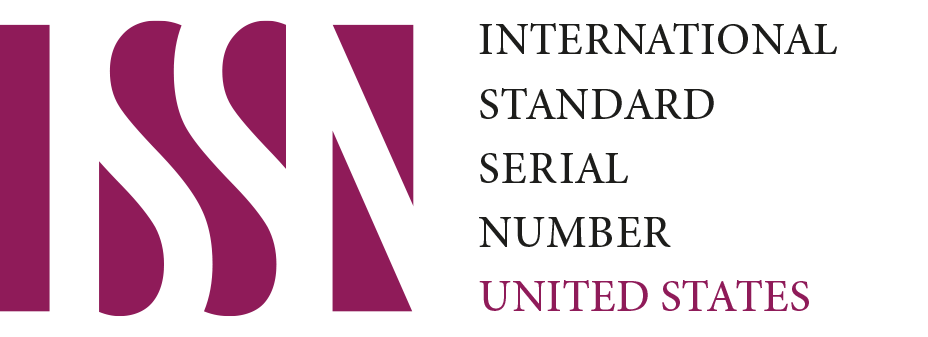Pengaruh Persaingan Jam Kerja dan Kebijakan Tarif pada Ojek Online terhadap Tingkat Pendapatan Mitra Driver Goride di Kota Denpasar
DOI:
https://doi.org/10.61404/mutiara.v3i4.439Keywords:
Competition, Income, TransportationAbstract
The rapid growth of the online transportation sector in Indonesia has driven a significant transformation in urban mobility systems, including in Denpasar City. One of the impacts of this development is the increasing competition among driver-partners, which directly affects fluctuations in their income. This study aims to empirically analyze the influence of competition level, working hours duration, and fare policies on the income of GoRide partners in Denpasar City. A quantitative approach was used in this research, with the population consisting of all active GoRide driver-partners in the area. The sample was determined using the Slovin formula with a 10% significance level, resulting in 67 randomly selected respondents. Data were collected through the distribution of structured questionnaires and analyzed using multiple linear regression methods to examine the effect of each independent variable on income as the dependent variable. The results show that the competition variable has a significant negative effect on partner income, indicating that the higher the level of competition, the lower the income earned. Conversely, working hours have a positive and significant effect, indicating that increased working duration directly contributes to higher income. Meanwhile, fare policy shows a positive but insignificant effect, meaning that although there is a statistically positive relationship, the effect is not strong enough to significantly impact income. These findings highlight the importance of efficient management of working hours and strategic adaptation to competition levels as efforts to maintain the economic sustainability of driver-partners. In addition, platform providers are advised to periodically review fare policies to ensure they remain aligned with market dynamics and partner needs, in order to maintain a sustainable income balance.
Downloads
References
Afifah, Erda. “Studi Perbandingan Regulasi Hukum bagi Pekerja Ekonomi Gig di Sektor Transportasi: Indonesia dan California.” Jurnal Restorasi Hukum 7, no. 2 (2024): 209–235. https://ejournal.uin-suka.ac.id/syariah/jrh/article/view/3801.
Arifin. “Pengaruh Jam Kerja dan Kebijakan Tarif Ojek Online terhadap Tingkat Pendapatan Driver Grab Bike di Kecamatan Medan Tembung.” Universitas Islam Negeri Sumatera Utara, 2020.
Arikunto, Suharsimi. Prosedur Penelitian: Suatu Pendekatan Praktek. Jakarta: PT. Rineka Cipta, 2019.
Byrne, David, dan Gillian Callaghan. Complexity Theory and the Social Sciences: The State of the Art. Edisi 2. New York: Routledge, 2023.
Creswell, John W. Research Design Pendekatan Metode Kualitatif Kuantitatif dan Campuran. Edisi 4. Yogyakarta: Penerbit Pustaka Pelajar, 2016.
Crystrie, Dhara Ayu, dan Syarifa Adhianur. “Pengaruh Inovasi Ojek Menjadi Ojek Online pada Ekonomi Kreatif di Era Revolusi Industri 4.0 (Studi Kasus pada Masyarakat Kota Tasikmalaya).” Parta: Jurnal Pengabdian Kepada Masyarakat 3, no. 1 (2022): 52–59. https://journal.undiknas.ac.id/index.php/parta/article/view/3573.
Darmawan, Dodi. “Hubungan Kemitraan Ekonomi Berbagi pada Transportasi Berbasis Daring di Indonesia (Perspektif Pengemudi Roda Dua).” Universitas Brawijaya, 2021.
Khairullah, M., Romi Oktarian Novasari, Tina Kartika, dan Nina Yudha Aryanti. “Digital Exploitation in the Gig Economy: A Marxian Study on Platform and Online Ojek Driver Relations.” eJESET: Electronic Journal of Education, Social Economics and Technology 6, no. 1 (2025): 647–655. https://ejeset.saintispub.com/ejeset/article/view/706/.
Kornberger, Martin, Dane Pflueger, dan Jan Mouritsen. “Evaluative Infrastructures: Accounting for Platform Organization.” Accounting, Organizations and Society 60 (2017): 79–95. https://www.sciencedirect.com/science/article/abs/pii/S0361368217300351.
Nazir, Moh. Metode Penelitian. Bogor: Ghalia Indonesia, 2014.
Noor, Berry Rivanaldo. “Pengaruh Kemitraan, Persaingan dan Pendapatan Ojek Online terhadap Kesejahteraan Driver Gojek di Jakarta Selatan.” Universitas Islam Negeri Syarif Hidayatullah Jakarta, 2024.
P, Adimas Raditya Fahky. “Kemenhub Terbitkan Aturan Batas Tarif Ojek Daring.” Antara. Last modified 2022. https://www.antaranews.com/berita/3046205/kemenhub-terbitkan-aturan-batas-tarif-ojek-daring.
Permana, Muhammad Yorga, Nabiyla Risfa Izzati, dan Media Wahyudi Askar. “Measuring the Gig Economy in Indonesia: Typology, Characteristics, and Distribution.” SSRN Electronic Journal (2023): 1–22. https://papers.ssrn.com/sol3/papers.cfm?abstract_id=4349942.
Pratiwi, Ghany Aulia, Raisa Majid Almakhsum, Ratna Dwi Setiyawati, Andira Putri Farahdila, dan Ahmad Zaki. “Kontestasi Start-up Ojek Online di Indonesia: Strategi Promosi Digital Gojek, Grab, Indriver, dan Maxim.” Oikonomika: Jurnal Kajian Ekonomi dan Keuangan Syariah 5, no. 1 (2024): 64–80. https://e-journal.iainfmpapua.ac.id/index.php/oikonomika/article/view/955.
Putri, Treviliana Eka, Paska Darmawan, Nabiyla Risfa Izzati, Amelinda Pandu Kusumaningtyas, Ruth Tarullyna Simanjuntak, dan Amri Anjas Asmara. Fairwork Ratings Indonesia 2021: Standar Kerja Layak pada Gig Economy. Yogyakarta: Fairwork, 2021.
Pynatih, Ngurah Made Novianha, I Made Gitra Aryawan, dan Si Nyoman Sudana. “Faktor-Faktor yang Mempengaruhi Pendapatan Driver Go-Jek di Kabupaten Tabanan.” Majalah Ilmiah Universitas Tabanan 18, no. 1 (2021): 140–147. https://ejournal.universitastabanan.ac.id/index.php/majalah-ilmiah-untab/article/view/122/.
Rizqi, Muhammad Farhan Ar, Pristanto Ria Irawan, dan Supriyadi. “Pengaruh Kenaikan Tarif Ojek Online terhadap Pendapatan Driver Ojek Online di Stasiun Bekasi.” Jurnal Minfo Polgan 13, no. 2 (2024): 2013–2018. https://www.jurnal.polgan.ac.id/index.php/jmp/article/view/14363/.
Sugiyono. Metode Penelitian Kuantitatif, Kualitatif dan R & D. Bandung: Alfabeta, 2019.
———. Metode Penelitian Kuantitatif, Kualitatif dan R & D. Bandung: Alfabeta, 2022.
Swarjana, I Ketut. Populasi-Sampel, Teknik Sampling dan Bias dalam Penelitian. Diedit oleh Erang Risanto. Edisi 1. Yogyakarta: Penerbit Andi, 2022. https://books.google.co.id/books?id=87J3EAAAQBAJ&printsec=frontcover&hl=id&source=gbs_ge_summary_r&cad=0#v=onepage&q&f=false.
Team Redaksi. “Survei, Kontribusi Gojek ke Perekonomian Kota Denpasar Capai Triliunan Rupiah di 2019.” BaliPost. Last modified 2020. https://www.balipost.com/news/2020/10/03/150250/Survei,Kontribusi-Gojek-ke-Perekonomian...html.
Zain, Gina Salma. “Pengaruh Fleksibilitas Jam Kerja, Kompensasi, dan Dukungan Rekan Kerja terhadap Kepuasan Kerja (Studi Kasus pada Driver Gojek di Madiun).” Universitas PGRI Madiun, 2025.
Zulkifli, Choirunnisak, dan Choiriyah. “Implikasi Kenaikan Tarif Ojek Online bagi Mitra Pengemudi di Kota Palembang.” JURBISMAN: Jurnal Bisnis dan Manajemen 1, no. 4 (2023): 1007–1028. https://ejournal.lapad.id/index.php/jurbisman/article/view/283/.
Downloads
Published
How to Cite
Issue
Section
License
Copyright (c) 2025 *Marthen Rohi Riwu, Ni Made Yudhaningsih, Putu Budhiyasa

This work is licensed under a Creative Commons Attribution-ShareAlike 4.0 International License.













